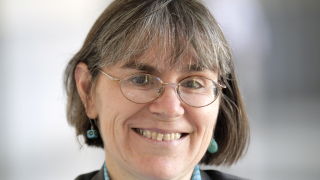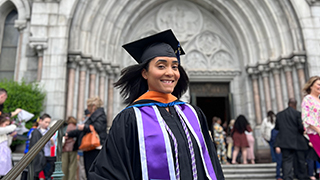Professor Margarita Balmaceda Receives Rave Reviews for New Book with Columbia University Press - Seton Hall University
Tuesday, November 30, 2021

Several institutions in the U.S. and the European Union, including the Woodrow Wilson International Center for Scholars, provided her with grants to conduct research on this book. This book builds upon her previous work on the area, which includes three other single-authored books, three edited books, and numerous articles.
She emphasized that while conducting research like hers is challenging, it is the "knowledge that people believed in [her]" that gave her the strength to continue with this project despite it being the hardest she has encountered so far. She also said that accomplishing such large projects requires a conception of a goal or a "light at the end of the tunnel" to achieve ones aims, and that this is a skill that students ought to develop. Similarly, she suggested that others' belief in her has been integral in every accomplishment since she was an undergraduate. Yet, acknowledging this has not always been the case in a discipline where women and people of color are still a small minority, Balmaceda rounded out our discussion by stressing that one cannot allow others to deny you their ability and dreams, and that students should surround themselves with "people who believe in you."
Balmaceda is a native of Buenos Aires who grew up there and in Puerto Rico, and came to the continental United States in her teens to study at Johns Hopkins University, earning a B.A. in International Studies. At 17, she entered the graduate program at Princeton University, from which she earned an M.A. and Ph.D. in Politics. She rounded out her education with a post-doctoral fellowship in Ukrainian Studies at Harvard. Throughout her education, in addition to her first language, Spanish, she gained fluency in English, Russian, Ukrainian, Hungarian and German.
Categories: Nation and World






